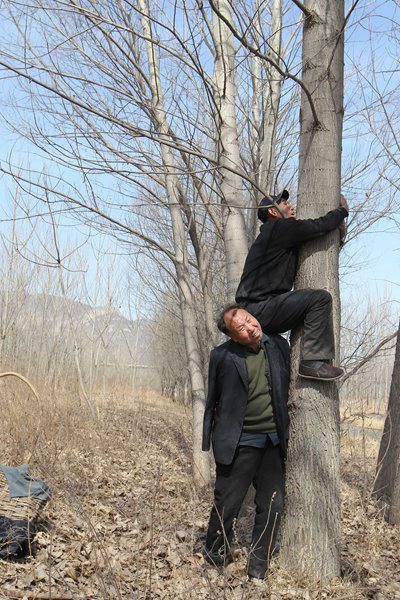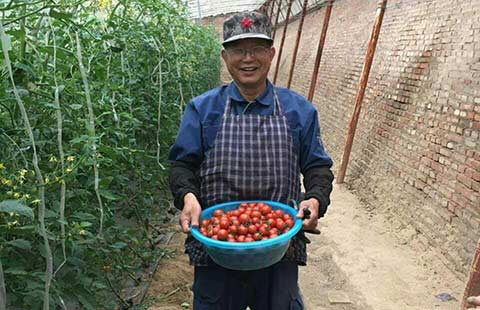Planters' punch
By Pei Pei and Sun Ye (China Daily) Updated: 2015-10-02 14:31
 |
|
Jia Wenqi helps Jia Haixia climb a tree to break a branch that will support seedlings in the soil.[Photo by Zhang Zhen/China Daily] |
Back then, the picture was bleak for the two men, and not just in terms of their desire to earn money. Jia Wenqi, a bachelor, was without regular employment and had to care for his ailing father.
Similarly, Jia Haixia, was struggling financially after getting sacked from a mineral mine where his blindness had become an impediment at work. In addition, his wife was ill and their son was very young.
"Haixia was devastated. ... How couldn't he be? He became a disabled person so suddenly," said Jia Wenqi.
Jia Haixia called the period a "dark phase" and said, the question in his head was: "What could I do?"
The men then came to an understanding that they would earn from planting aspens and willows, two species that grow fast.
At the time, many calcium and magnesium mines in the area needed wooden crutches, which were used to support mining appliances, and that triggered their interest in trees.
Village authorities also allowed them to use an uncultivated plot of land to grow the trees.
"We didn't expect anything from them. It was just to give them something to do," said Zhao Ercang, a village official.
Jia Wenqi and Jia Haixia each lived on allowances for low-income families of less than 200 yuan ($31.3) a month. The average yearly income for the village is 3,000 yuan today.
The two men then started treading a daily path they would follow for years. Each morning, Jia Wenqi would visit Jia Haixia, let him clutch onto a sleeve of his shirt and walk. On reaching the plot of land "assigned" to them, the two men would till the soil and plant the saplings. To fetch branches to support the seedlings, Jia Haixia would climb on his friend's shoulders and inch upward.
- Brace for deluge, Xi tells nation
- Li says new plan shows innovation's top priority
- Manila urged to 'walk out of its wrong path'
- China repatriates 141 fugitive officials since 2015
- Li says private investment needs boost
- Ex-minister: Provocations prompted naval drill
- China plans bureau for immigration, report says
- Beijing 'will never' halt island work
- Rain keeps the floods coming
- 8,000 schools in UK to add Chinese math system










